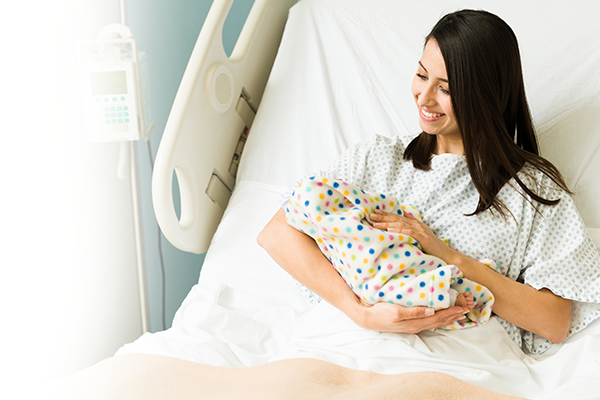Pregnancy in the UK is an extremely quiet time for moms-to-be. Moms in the UK can count on very good support from the government and social welfare, so this difficult time for them becomes more comfortable. The costs of pregnancy and the period just after it are much lower than in Poland because of this.
Pregnancy in the UK and the postpartum period are exceptionally well remembered by all the ladies who experienced it while expatriating in England. Planning a family and being a mom in the UK is much easier than in our country, especially because of the very good care.
Advantages of being pregnant in the UK
Under current UK law, pregnant women can go on sick leave at any time during pregnancy in the UK, and for the days off, the employer must pay the woman sick pay (Statutory Sick Pay). It is worth noting, however, that if the sickness ailment is related to pregnancy, the employer will deduct sick leave days regardless of normal sick days. Therefore, sickness due to pregnancy cannot be a reason for dismissal, due to gender discrimination. Pregnancy in the UK vs. work are values that the British state places special emphasis on. Moms in the UK have the right to go on Maternity Leave within 4 weeks of their planned delivery date, which is a definite nod to moms-to-be. There is, of course, one condition – the pregnant woman must have been employed by her employer for a minimum of 26 weeks and be earning more than £113 per week.
A single mom in the UK with a low income is also covered by welfare – she can claim a one-time benefit of £500. To receive such assistance, you must fill out an application from either 11 weeks before the scheduled date of delivery or 3 months after the birth of the child. The UK also has maternity and paternity pay and allowance, child benefit and allowance, and a child care reimbursement program. Maternity Allowance is also available to women who own their own business or those who have decided to run their own business during pregnancy. The size of such a benefit is about £141 per week.
Many pregnant women do not choose to get pregnant in the UK and give birth in Poland. However, returning to the country, during the course of the pregnancy, involves seeing to the necessary documentation and performing a number of gynecological tests that are not on the agenda in the UK, such as a sugar curve.
A few years ago, a pertussis vaccination program for pregnancy was introduced in the UK. Failure to protect a pregnant woman from whooping cough can lead to pneumonia, brain damage and even death. Unfortunately, such vaccination gives protection only up to 2. A month of a newborn’s life. Between 28 and 32 weeks of pregnancy, every woman with Rh- blood type gets an injection of anti-D antibodies. This is an essential procedure, as a serological conflict is a major threat to the baby.
A big plus of being a mom in the UK is the public space, where there is no shortage of facilities for mother and child. Facilities are everywhere. There are changing tables in every restaurant, cafeteria and even in public restrooms such as those in commuter train stations and subways. The playgrounds and parks are suitable for children of all ages, and are clean and well-maintained.
Disadvantages of being pregnant in the UK
The biggest downside associated with being in a blessed state in the UK is the lack of attention paid to pregnant women during the first trimester of pregnancy, which is, after all, crucial. In the UK, virtually no blood or other gynecological tests are performed, and the mother-to-be is left to her own devices. There are also only two ultrasound images per pregnant woman – at 12 and 20 weeks of pregnancy. Also not included in the standard are tests for the sugar curve, intimate infections, diabetes and streptococcal infection.
It is worth noting that in England it is not the gynecologist who guides the mother-to-be through her pregnancy, but mainly the midwife. Obstetricians in the British Isles are qualified in this field and really have a lot of experience in the matter of pregnancy management. It is a little different with pregnancies at risk, in which case a gynecologist can take over the care of the pregnant woman. Ladies who gave birth to their child in England also complain about long waiting times for basic tests, such as blood draws. However, this is not the rule. In any case, a big factor that matters in pregnancy care is the human factor.
Rate this article:











